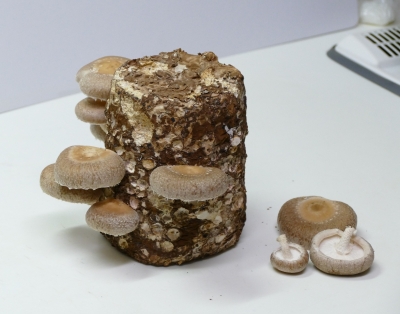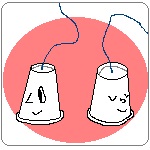■「ゴガクル」サイト終了のお知らせ■
長い間、みなさまの学習にお役立ていただいてきた本サイト「ゴガクル」(株式会社NHKエデュケーショナルが運営)は、 2025年9月30日 正午をもって終了することになりました。これまでご利用いただき、誠にありがとうございました。 続きはこちら>
風鈴さんの おぼえた日記 - 2016年12月30日(金)

この日記をフォローしているユーザ
この日おぼえたフレーズ(英語・中国語・ハングル)
- 1.
- After finishing the course, I received a certificate of completion.
- 2.
- A gift certificate is a very practical present.
- 3.
- In Japan, the usual practice is to invite family and friends to a ...
- 4.
- When you think about it, this is where I come from.
- 5.
- This is to wish you a wonderful holiday season.
おぼえた日記

ラジオ英会話 現在形を使って話をするアドバイス・その5 Friday, December 30
段取り・打ち合わせ・手順を現在形で確認する
段取りの打ち合わせ
〇ここであなたの出番です。 This is where you come in.
☆現在形で未来のアクションを表している
結婚式でスピーチを頼む
Maryさんに、スピーチを2番目に頼むので段取りを説明する
〇披露宴会場には、開場する11時半に行ってください。全員が着席したら、次に司会者が主賓にスピーチを依頼します。そのあと正餐が始まります。
You need to be at the reception hall when it opens at 11:30. After everyone is seated, the MC asks the guests of honor to make a speech. After that, the dinner begins.
〇正餐の途中でさらに、スピーチの依頼があります。ここであなたの出番ですよ、メアリーさん。あなたはリストの2番手です。司会者がご紹介したら、会場の前方のマイクのところへ行って、スピーチをお願いします。
During the dinner, more people are asked to make a speech. This is where you come in, Mary. You are number 2 on the list. When the MC introduces you, go up to the microphone in the front of the hall and make your speech.
〇ズピーチのコピーをください。翻訳して司会者に渡します。
Could you give me a copy of your speech? I’ll translate it and give it to the MC.
Maryさんは司会者に段取りを確認する
〇はい。では確認させてください。 Okay. Let me make sure I’ve got it right.
I need to be at the reception hall when it opens at 11:30. After everyone is seated, the MC asks the guests of honor to make a speech. After that, the dinner begins. During the dinner, more people are asked to make a speech. This is where I come in. I’m number 2 on the list. When the MC introduces me, I go up to the microphone in the front of the hall, and make my speech. Is that right?
スピーチのコピーと和訳の作業の確認
And I can give you a copy of my speech. Thank you for offering to translate it.
ボランティア作業のうち合わせ
〇隅週月曜日の朝9時半にドングリ公園に集合。まず花壇(flowerbeds)に取り組む。花がらを摘み取り(pinch off the dead flowers)、除草(weed)と水やり(water)をする。次に、落ち葉を熊手で集め(rake the leaves)、ポリ袋(plastic bags)に入れる。11時までに完了し(finish up)、解散。
So every other Monday morning at 9:30 we get together at Donguri Park. First we work on the flowerbeds. We pinch off the dead flowers, then weed and water the flowerbeds. And then we rake the leaves and put them in plastic bags. We finish up by 11:00 and go home.
ボランティアたちのすることを確認する(Theyを主語にして)
So every other Monday morning at 9:30 they get together at Donguri Park. First they work on the flowerbeds. They pinch off the dead flowers, then weed and water the flowerbeds. And then they rake the leaves and put them in plastic bags. They finish up by 11:00 and go home.
表彰式の段取り
〇表彰式は午後1時にスタートします。まず、校長の挨拶があります。そのあと、主賓からの祝辞があります。そのあと、1時半から賞が手渡されます。John さんには、ここでご登場願います。1位から3位までの表彰状を読み上げてください。
The award ceremony starts at 1 p.m. First there is speech from the principal.
●award ceremony 表彰式 ●There is speech from ... ~のスピーチがあります
Then there is a congratulatory speech from the guest of honor. Then at 1:30 the awards are handed out. This is where you come in, John. Read out loud the certificates of achievement for the first to third place awards.
●congratulatory speech 祝辞 ●be handed out 手渡される
●certificate of achievement for the first place award 一等賞
基礎英語3 Welcoming New Year’s 新年を迎える
〇ユキチと彼の友達は、日本人が年末とお正月をどのように過ごすのかについて話しました。
Yukichi and his friends talked about how Japanese people spend the end of the year and the New Year’s holidays.
〇次の日、彼らは、東京の最もにぎやかな商店街のひとつであるアメ横に行き、日本で新年をどのように祝うかについて話しました。
On the following day, they went to Ame-yoko, one of the busiest shopping streets in Tokyo and talked about how New Year’s is celebrated in Japan.
●busiest busyの最上級
〇大みそかに、ユキチはアスカからの電話を受け取りました。
On New Year’s Eve, Yukichi received a call from Asuka.
〇彼女は、ダグからの思いもよらない招待について話し、それはユキチにショックを与えました。
She told him about Doug’s unexpected invitation, which shocked Yukichi.
●unexpected 予期しない、思いもよらない、予想外の
〇家で、ロボコーパスはユキチに会いにやってきました。
At home, RoboCorpus came to see Yukichi.
〇ロボコーパスはユキチに伝えるべき重要なことがあったのです。
He had something important to tell him.
〇ユキチはロボコーパスと話をする気分ではなく、ドアを閉めました。
Yukichi didn’t feel like talking with him and shut the door.
〇ユキチはアスカについて考えていました。 Yukichi was thinking about Asuka.
〇ロボコーパスはユキチを心配しました。 RoboCorpus was worried about him.
How come …? 「どうして…?」
how come は会話の途中で今聞いた内容を受けて、驚いた感じで「どうして…?」
おどろいてコメントする感じ
〇どうして話してくれなかったの? How come you didn’t tell me?
〇どうして電話しなかったの? How come you didn’t call?
〇どうして彼女はここにいないんだ? How come she’s not here?
〇「わたしはNOと言った。」「どうして?」 “I said no.” “How come?”
季節の行事を簡潔に現在形で説明する
〇新年に特別な料理を食べます。それを「おせち」と言います。
We eat special dishes during New Year’s. They are called osechi.
〇新年にお餅と野菜が入った汁物を食べます。それを「お雑煮」と呼びます。
We eat a bowl of soup with rice cakes and vegetables during New Year’s. It’s called ozone.
●a bowl of soup/a soup dish 汁物 ●おもち raice cake
〇子どもたちは、日本ではお正月に袋に入ったお金をもらいます。それを「お年玉」といいます。
Children receive an envelope of money during the New Year’s holidays in Japan. It’s called otoshidama.
●an envelope of money お年玉 ●the New Year's holidays お正月
シイタケ栽培 3回目
3回目の収穫は少なかったのですが、大きいシイタケができました。ネットに入れて干しています。
〇すてきな年末年始をお過ごしください。
This is to wish you a wonderful holiday season.
![]() /english/phrase/25008
/english/phrase/25008
















爛々と昼の星見え菌生え 高浜虚子
風鈴は学生時代天文部でした。星の観測は夜だと思われていますが、昼でも見ることができます。井戸の底とか煙突で真っ暗な底から上をみると青空に星が見えます。こう言う狭い空間は湿気があり、キノコが生えています。本当です。
風鈴も真青なぐらいのがんばりやさんですね。覚えたフレーズ、300に王手ですね。風鈴も頑張りましたが260ぐらいです。来年も月200を目標にがんばります。
Happy New Year! 良いお年を!
風鈴はキノコ類が大好きです。パスタでもキノコの入っているのを頼みます。体にいい感じがします。ヘルシーな感じもします。免疫力があるんですね。ますます好きになりました。
Happy New year! よいおとしを!